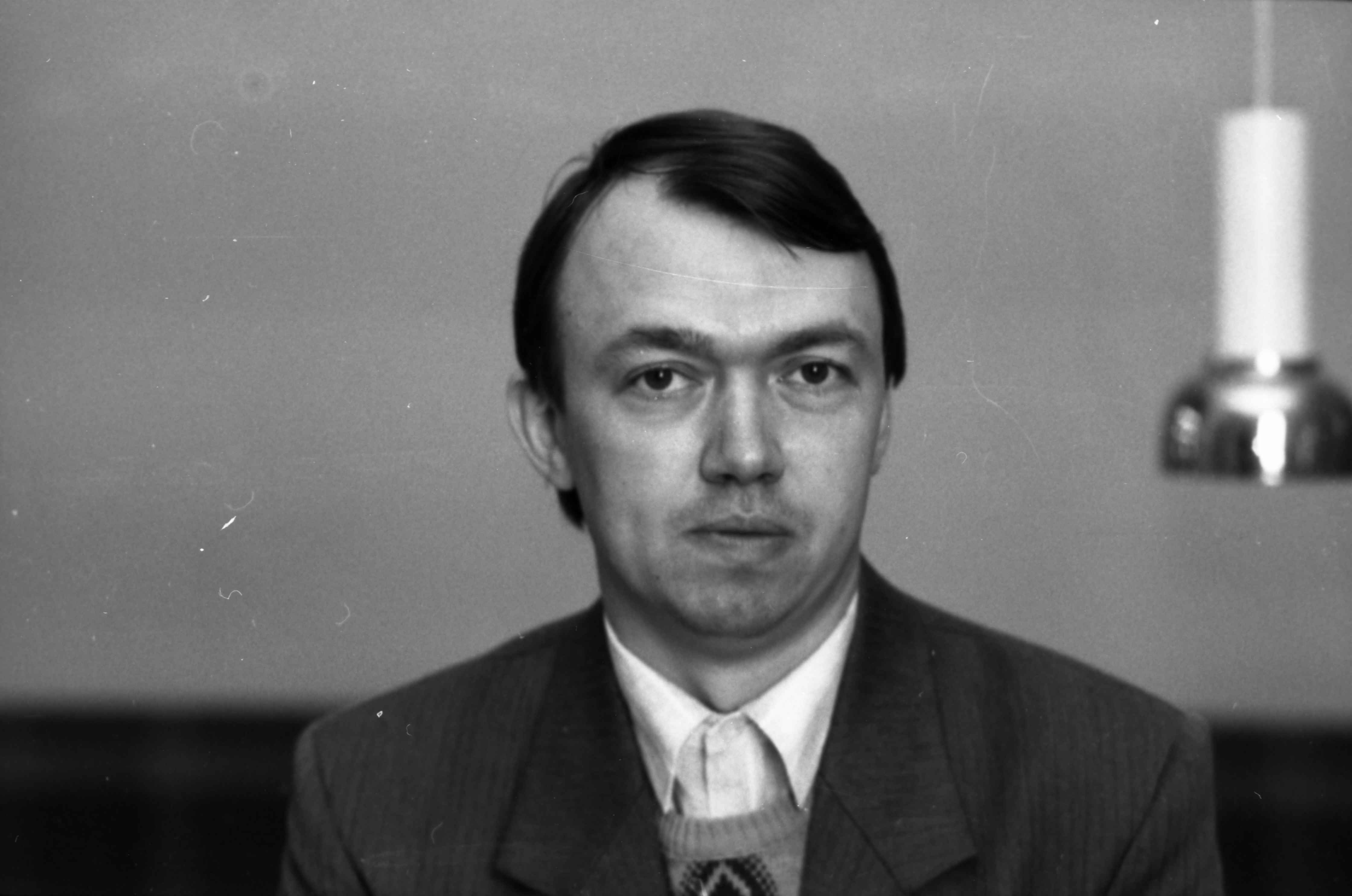
Priidu Beier
Priidu Beier (has also used the pseudonyms Matti Moguči, Pierre Bezuhhov, Ada Piirlup, Kersti Maarler, b. 16. X 1957) is a poet.
Beier was born in Tartu and attended schools in Abja, Õru, Tsirguliina, Riidaja, and Tõrva. He graduated as an art historian from the University of Tartu in 1983; thereafter he worked at the Tartu Art Museum and in different schools, where he taught aesthetics, philosophy and history. In the nineties he worked as and editor for cultural papers and newspapers (such as Postimees and the legendary cultural paper Kostabi).
In the second half of the nineteen-seventies he became a popular reader of his own poems, but there were difficulties with publication, because poetry using a grotesque and occasionally low style was not acceptable to the ideology of the time. In the mid-eighties he brought a new paradigm to Estonian poetry. His poetry was stylistically and thematically free of the mainstream canon.
In the nineteen-eighties he started to use the pseudonym Matti Moguči, under which he published three collections of poems. The poetry created under this name was performed by the legendary art collector and bohemian of Tartu, Matti Milius (1945-2015). The fourth book published under the name of Matti Moguči and presented by Milius, Sind armastan, president Meri. Luulet aastaist 1995-1998 (‘I Love You, President Meri. Poems from 1995-1998’, 1998) does not contain poems written by Beier anymore.
Beier was an especially significant author in the nineteen-eighties and early nineties, when his linguistically and stylistically original work expressed the moods of restoring Estonia’s independence. The poems adhering to ordinary metre, rhyme and stanza pattern are mostly parodic.
Priidu Beier was one of the main Estonian ‘underground’ authors of the period in question. His poetry is the connecting link between the traditional village song and urban poetry. Bravado and playful irony changed in his later poetry into melancholy, and he started to concentrate a little more on social life and his past youth. Nevertheless, Beier still appears as a hopeful troubadour in his basic nature.
In 2002 Beier won the Juhan Liiv poetry prize and in 2008 the Gustav Suits poetry prize.
A. Mv (Translated by C. M.)
Books in Estonian
Poems
Vastus. Tallinn: Eesti Raamat, 1986, 77 lk.
Tulikiri. Tallinn: Eesti Raamat, 1989, 103 lk.
Matti Moguči, Õrn ja rõve. Tartu: P. Beier, 1990, 46 lk.
Mustil päevil. Tallinn: Eesti Raamat, 1991, 95 lk.
Femme fatale. Tallinn: Huma, 1997, 61 lk.
Matti Moguči, Mina- Eiffeli torn. Tartu: P. Beier, 1999, 90 lk. [Käsikiri valminud 1982.]
Maavalla keiser ehk kurb klounaad. Tartu: Paar, 2000, 71 lk.
Monaco. Tartu: Paar, 2002, 67 lk.
Matti Moguči, Mina – Metsikuim mehike. Tartu: P. Beier, 2005, 79 lk. [Käsikiri valminud 1984.]
Saatmata kirjad. Luuletusi aastatest 1976-2000. Tallinn: Verb, 2007, 150 lk.



